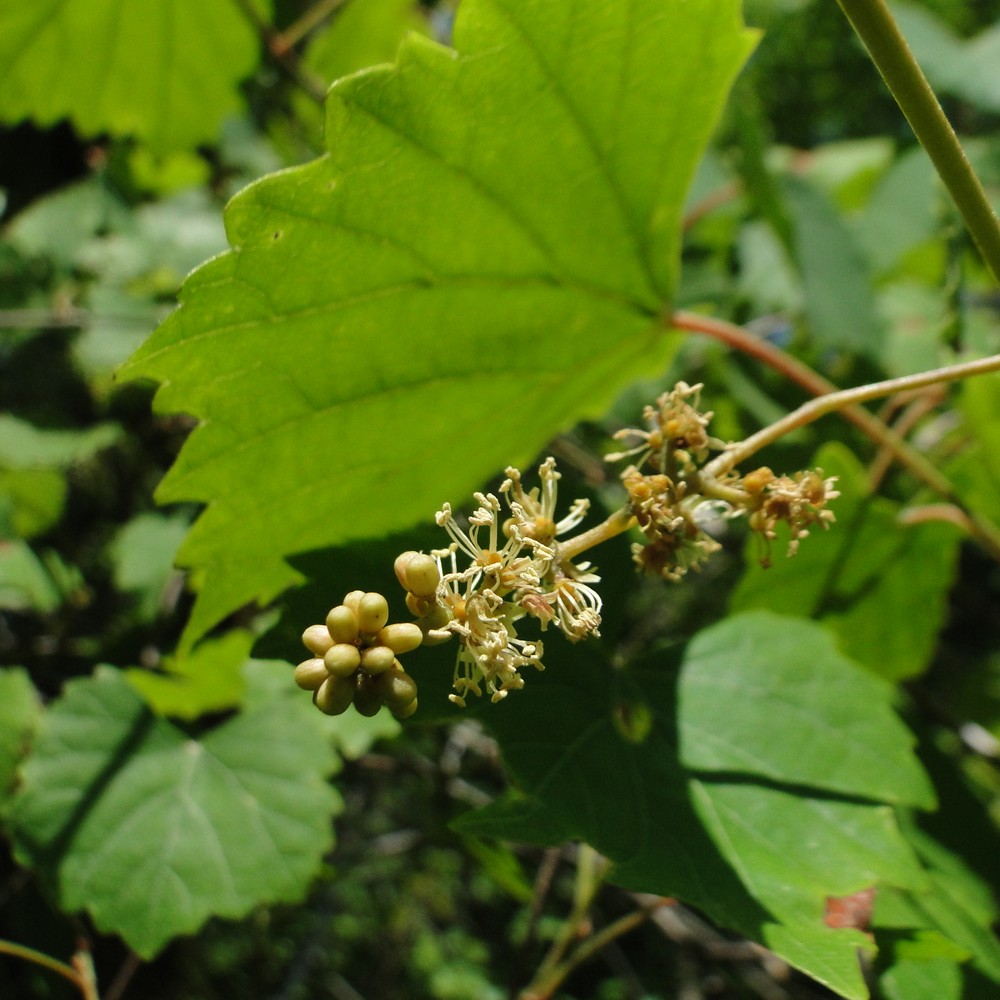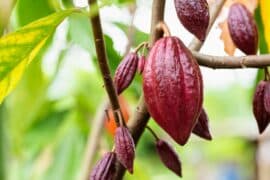Muscadine
(Cissus rotundifolia)

Description
Vitis rotundifolia, or muscadine, is a grapevine species native to the southeastern and south-central United States. The growth range extends from Florida to New Jersey coast, and west to eastern Texas and Oklahoma. It has been extensively cultivated since the 16th century. The plants are well-adapted to their native warm and humid climate; they need fewer chilling hours than better known varieties, and thrive in summer heat. Muscadine berries may be bronze or dark purple or black when ripe. Wild varieties may stay green through maturity. Muscadines are typically used in making artisan wines, juice, and jelly. They are rich sources of polyphenols. In a natural setting, muscadine provides wildlife habitat as shelter, browse, and food for many birds and animals. It is also a larval host for the Nessus Sphinx Moth (Amphion floridensis) and the Mournful Sphinx Moth (Enyo lugubris). Although in the same genus Vitis with the other grapevine species, the muscadine species belongs to a separate subgenus, Muscadinia (all other grapevine species belong to subgenus Euvitis). Usually the species is divided into three varieties, Vitis rotundifolia Michx. var. rotundifolia (southeast USA), Vitis rotundifolia Michx. var. munsoniana (Florida), and Vitis rotundifolia Michx. var. popenoei (Central America). Some taxonomists have suggested giving the muscadines standing as a genus of its own. It has then also suggested upgrading the varieties to species rank and so splitting two additional species off from Vitis rotundifolia, Vitis munsoniana and Vitis popenoei. All have 40 chromosomes, rather than 38, are generally not cross-compatible with Euvitis subgenus, and most hybrids between the subgenera are sterile. A few are moderately fertile, and have been used in breeding. A commercially available Euvitis × Muscadinia hybrid is the Southern Home cultivar. Although muscadines are hearty grapes with tough skin that protects them from many plant diseases, these grapes nonetheless appear to be susceptible to parasitic nematodes. There are about 152 muscadine cultivars grown in the Southern states. These include bronze, black and red varieties and consist of common grapes and patented grapes. Unlike most cultivated grapevines, many muscadine cultivars are pistillate, requiring a pollenizer to set fruit. A few, such as 'Carlos' and 'Noble', are perfect-flowered, produce fruit with their own pollen, and may also pollinate pistillate cultivars.
Taxonomic tree:







